The Impact of Hard Water on Your Plumbing and How to Deal with It
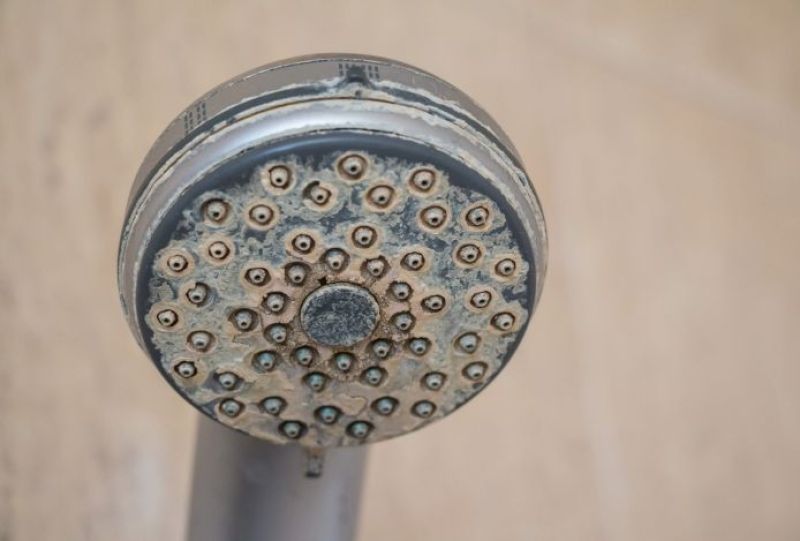
TLDR: If you’re a homeowner, you’ve likely heard the term “hard water” before, but do you know what it means and how it can affect your plumbing system? Hard water is a common issue in many households, and its effects can go beyond simple inconveniences. In this comprehensive guide, we’ll delve into what hard water is, how it impacts your plumbing, signs to look for, and practical solutions to deal with it effectively.
Understanding the Hard Water in Your Tucson Home
What Is Hard Water?
Hard water refers to water that contains elevated levels of minerals, particularly calcium and magnesium ions, which is a significant problem in many Tucson homes. These minerals naturally enter the water supply as it passes through underground rock formations, gradually dissolving and becoming part of the water. The hardness of water is typically measured in grains per gallon (GPG) or parts per million (PPM) of calcium carbonate.
How Does Water Become Hard?
The hardness of water can vary due to the geological characteristics of the region. Initially, when rainwater falls, it is relatively soft. However, as it percolates through the ground and encounters limestone, chalk, or gypsum deposits commonly found in the Tucson area, it absorbs minerals and transforms into hard water. This geological process is responsible for the prevalence of hard water experienced by Tucson homeowners.
The Impact of Hard Water on Your Plumbing
Hard water is a common issue in many households, and its effects on plumbing systems can be significant. Among the various challenges posed by hard water, one of the most noticeable is the relentless formation of scale. This chalky buildup, primarily composed of calcium and magnesium minerals, can wreak havoc within your plumbing infrastructure. In this section, we will delve deeper into the consequences of hard water-induced scale buildup, exploring how it affects water flow, clogs faucets and fixtures, diminishes the efficiency of water-using appliances, poses specific threats to your water heater, and leads to more frequent plumbing repairs. Understanding these impacts is crucial for homeowners looking to address the challenges posed by hard water and ensure the longevity of their plumbing systems.
1. Scale Buildup:
One of the most noticeable effects of hard water is the formation of scale. As hard water flows through your plumbing pipes, it leaves behind mineral deposits composed primarily of calcium and magnesium ions. These deposits accumulate gradually, forming a hard, chalky substance known as scale. This scale tends to coat the inner surfaces of your pipes, faucets, and fixtures. Over time, the scale buildup can become significant, creating various issues throughout your plumbing system.
2. Reduced Water Flow:
As scale continues to accumulate inside your plumbing pipes, it acts like a narrowing constriction, restricting the flow of water. Picture it as if your pipes are developing a layer of mineral plaque. This constriction inevitably leads to a noticeable reduction in water flow and pressure at your faucets and fixtures. Everyday tasks such as taking a shower or washing dishes can become less efficient and more time-consuming due to the decreased water flow caused by hard water-induced scale buildup.
3. Clogged Faucets and Fixtures:
The buildup of scale doesn’t stop at pipes; it also affects your faucets and fixtures. Over time, as hard water continuously passes through these components, it leaves behind mineral deposits, which can accumulate and eventually lead to clogs. You might notice that water no longer flows freely from your faucets but instead trickles out erratically. In severe cases, complete blockages can occur, necessitating cleaning or replacement of the affected fixtures.
4. Decreased Efficiency of Water-Using Appliances:
Hard water can significantly impact the efficiency and lifespan of water-using appliances within your home. The scale that accumulates in these appliances can prove detrimental to their performance. Dishwashers, washing machines, and water heaters, in particular, can suffer. The scale buildup can act as an insulating layer, reducing the efficiency of heating elements and coils. This, in turn, requires these appliances to work harder and consume more energy to achieve the desired results, leading to increased energy consumption and ultimately higher utility bills.
5. Water Heater Issues:
Hard water poses particular problems for your water heater. The heating elements inside the water heater’s tank can become coated with scale, which acts as an insulator. This insulation effect reduces the heating efficiency of the elements, making it take longer to heat the water to the desired temperature. As a result, you may experience longer waiting times for hot water and, in turn, increased energy usage. The constant exposure to hard water can also shorten the lifespan of your water heater, leading to the need for premature replacement or repairs.
6. Frequent Plumbing Repairs:
The constant presence of hard water in your plumbing system can lead to more frequent repairs and maintenance. The scale buildup caused by hard water can damage various plumbing components, such as valves, seals, and gaskets. Over time, these components may deteriorate or fail, requiring replacement or repair work. The cumulative effect of these issues can lead to higher maintenance costs and the inconvenience of dealing with plumbing problems more often than you would in a system without hard water. Addressing hard water effectively can help reduce the frequency of these repairs and prolong the lifespan of your plumbing system.
Common Signs of Hard Water
How can you tell if you have hard water in your home? Here are some common signs to look for:
- Scale Deposits: Visible scale buildup on faucets, showerheads, and fixtures is a clear indicator of hard water.
- Reduced Water Pressure: If you notice a decrease in water pressure, especially in your shower or faucets, hard water may be the culprit.
- Soap Scum: Hard water can make it challenging to lather soap, leading to the formation of soap scum in sinks, bathtubs, and shower stalls.
- Spots on Glassware and Dishes: Hard water can leave behind spots and streaks on glassware and dishes, even after they’ve been washed and dried.
- Faded Clothing: Clothes washed in hard water may appear faded and have a shorter lifespan due to mineral deposits in the fabric.
Ways to Decrease the Effects of Hard Water
Dealing with hard water is essential to maintain the efficiency and longevity of your plumbing system. Here are some effective methods and solutions to combat the adverse effects of hard water:
Water Softeners
A water softener is an appliance specifically designed to remove hardness minerals from your water supply. It works by exchanging calcium and magnesium ions with sodium ions through a process called ion exchange. This effectively “softens” the water by reducing the concentration of these minerals.
Water softeners are highly effective in treating hard water throughout your entire home. They are usually installed at the point where water enters your house and use a resin tank to exchange hard minerals for sodium ions. As a result, the water that flows through your plumbing system becomes significantly softer, preventing scale buildup and addressing many of the issues associated with hard water.
Descalers
Descalers, also known as water conditioners or electronic water softeners, are alternatives to traditional water softeners. They use electromagnetic or magnetic fields to alter the structure of hardness minerals, preventing them from forming scale in your plumbing system.
Descalers offer a salt-free solution to hard water problems. These devices generate an electromagnetic field that changes the crystalline structure of minerals in the water, preventing them from adhering to surfaces and forming scale. While they don’t remove minerals from the water, they effectively reduce the negative impacts of hard water without adding sodium to your water supply.
Citric Acid or Vinegar
For a natural and DIY approach, you can use citric acid or vinegar to remove scale buildup on faucets and fixtures. Soaking affected areas in a mixture of water and citric acid or vinegar can help dissolve the scale.
If you’re dealing with localized scale buildup on faucets, showerheads, or fixtures, a simple and environmentally friendly solution is to use citric acid or white vinegar. Mix either of these substances with water and soak the affected areas to break down and dissolve the scale. Scrub gently to remove any remaining residue, restoring your fixtures to their original condition.
Regular Maintenance
Regularly cleaning and descaling faucets, showerheads, and fixtures can help manage the effects of hard water. This can be done using commercial descaling products or homemade solutions like baking soda and vinegar.
Preventing scale buildup through regular maintenance is key to mitigating the effects of hard water. Commercial descaling products are readily available and can effectively dissolve scale from various surfaces. Additionally, you can create your own descaling solution using a mixture of baking soda and vinegar. Regularly clean and descale faucets, showerheads, and fixtures to keep them functioning optimally and extend their lifespan.
Filtered Water
Installing a whole-house water filtration system can help reduce hardness minerals and other impurities in your water supply, improving its quality and reducing the negative effects of hard water on your plumbing.
A whole-house water filtration system is a comprehensive solution to hard water problems. It not only reduces the concentration of hardness minerals but also removes other impurities, enhancing the overall quality of your water. These systems typically use various filters, such as reverse osmosis or activated carbon, to provide your home with clean, softened water. Installing a water filtration system can significantly improve the taste and quality of your water while protecting your plumbing from the detrimental effects of hard water.
Conclusion
Hard water is a common concern that can profoundly affect your plumbing system and household devices. Identifying the indicators of hard water and adopting preventive measures can not only save you money on potential repairs but also enhance the overall efficiency of your plumbing while extending the lifespan of your appliances. W
hether you opt for a water softener, descaler, or other strategies, addressing hard water is a vital stride toward ensuring the well-being and efficiency of your home’s plumbing system. If you encounter persistent hard water issues or need expert guidance, don’t hesitate to reach out to Rootin Tootin Rooter and Plumbing for assistance and solutions.
Frequently Asked Questions About Your Hard Water in Tucson
What are the potential risks of ignoring hard water issues in my plumbing system?
Ignoring hard water issues can lead to scale buildup in pipes, reduced appliance efficiency, and increased utility bills. Over time, it may also result in costly plumbing repairs and premature appliance replacements.
How do water softeners work, and are they a good solution for dealing with hard water?
Water softeners use ion exchange to remove calcium and magnesium ions, which cause hardness, from your water supply. They are highly effective at treating hard water and preventing scale buildup, making them a recommended solution for many homeowners.
How often should I perform maintenance on my plumbing system to prevent hard water-related issues?
Regular maintenance should include cleaning and descaling fixtures, showerheads, and appliances. The frequency depends on the hardness of your water, but performing maintenance tasks every few months can help prevent scale buildup.
What are the benefits of installing a whole-house water filtration system for dealing with hard water?
Whole-house water filtration systems not only reduce hardness minerals but also remove other impurities, improving overall water quality. They can protect your plumbing, extend the life of appliances, and provide cleaner, better-tasting water throughout your home.
What is the cost involved in addressing hard water issues, and is it a worthwhile investment?
The cost of addressing hard water issues varies depending on the chosen solution. While there may be an initial investment, the long-term benefits, including improved appliance efficiency, reduced energy consumption, and extended plumbing system lifespan, often outweigh the costs. The experts at Rootin Tootin Rooter and Plumbing are happy to provide a free consultation to solve your hard water issues.
Can hard water affect the health of my family?
Hard water is generally safe for consumption, but it can affect the skin and hair by leaving them feeling dry. Installing a water softener or filtration system can help alleviate these concerns and improve overall water quality.
Other Blogs You May Be Interested In
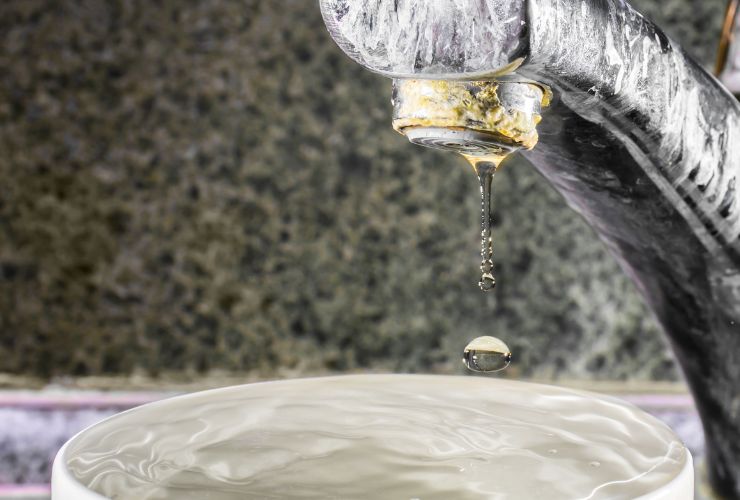
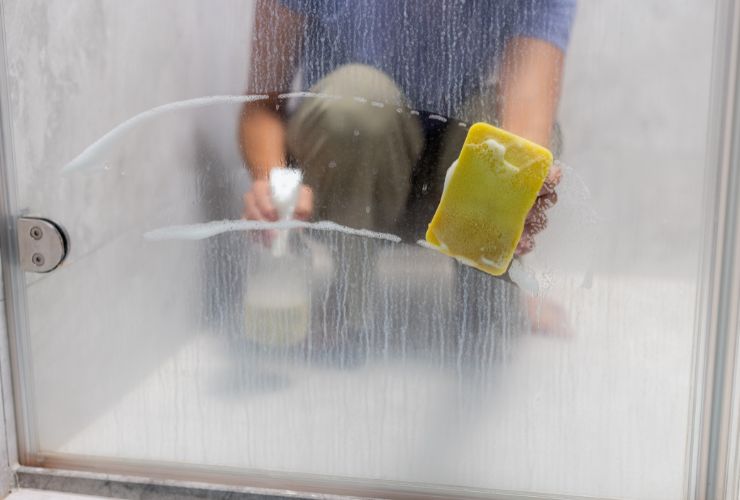
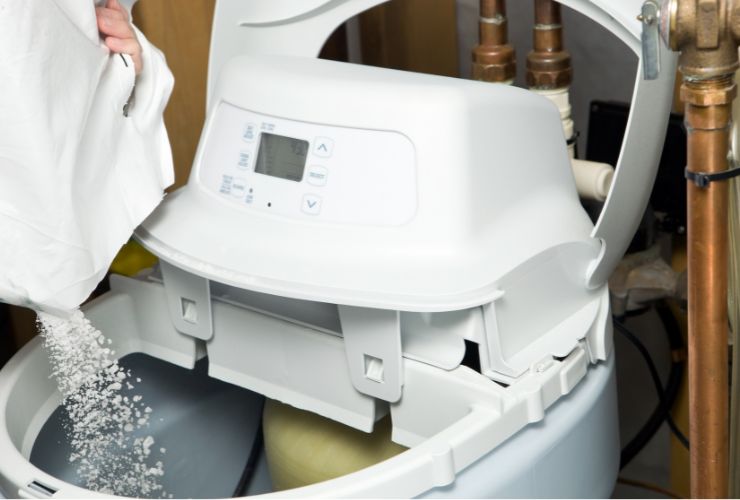
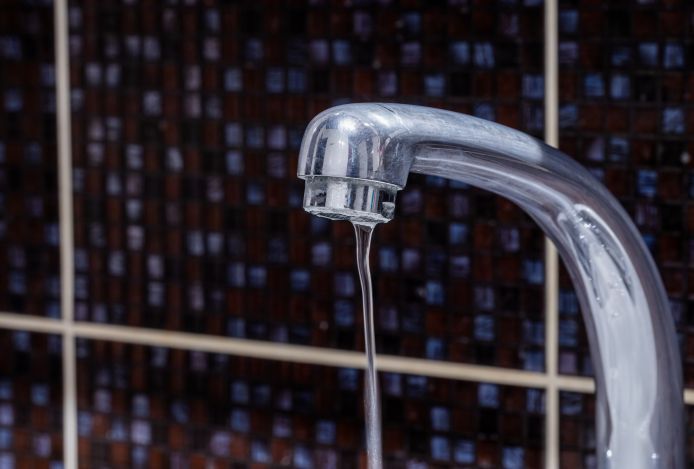
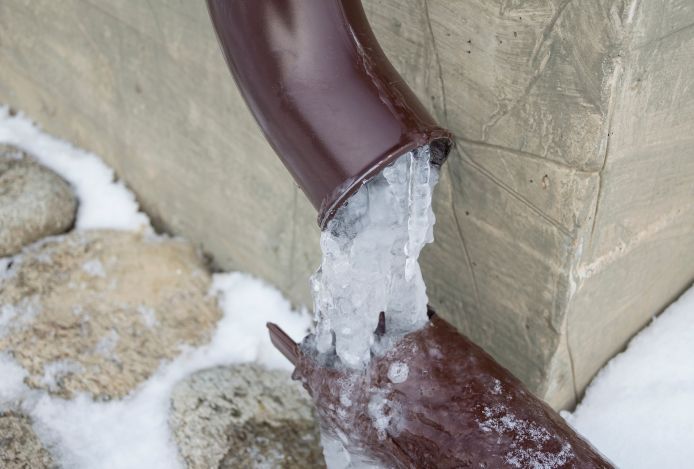

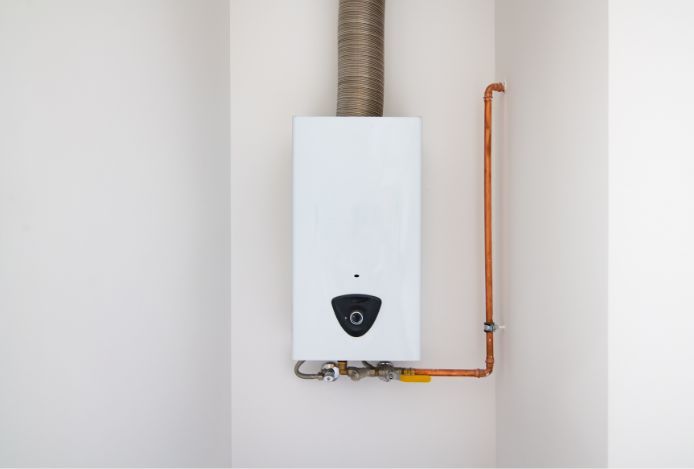
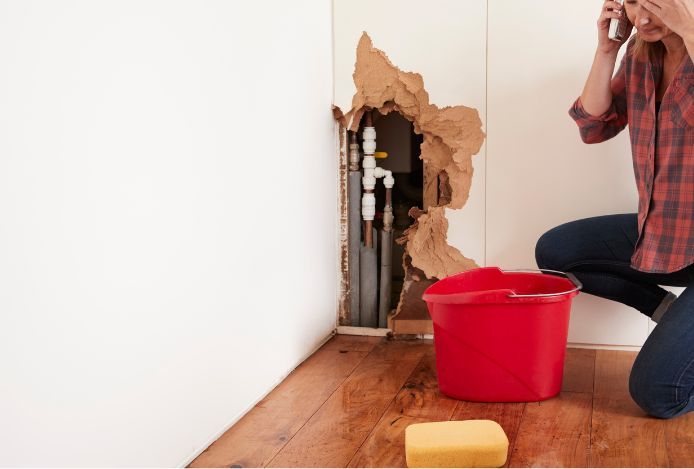
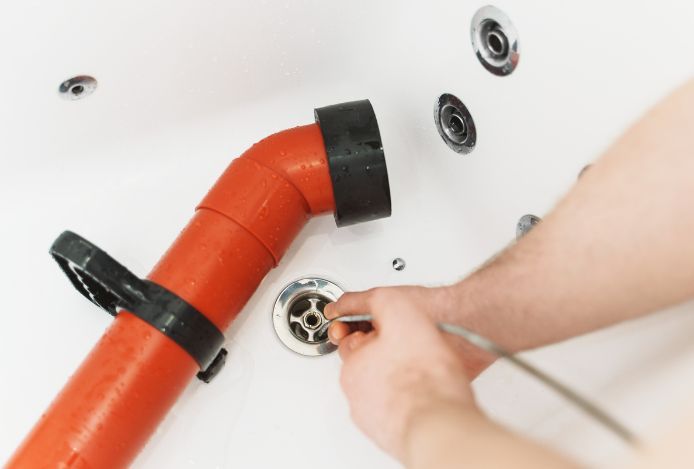
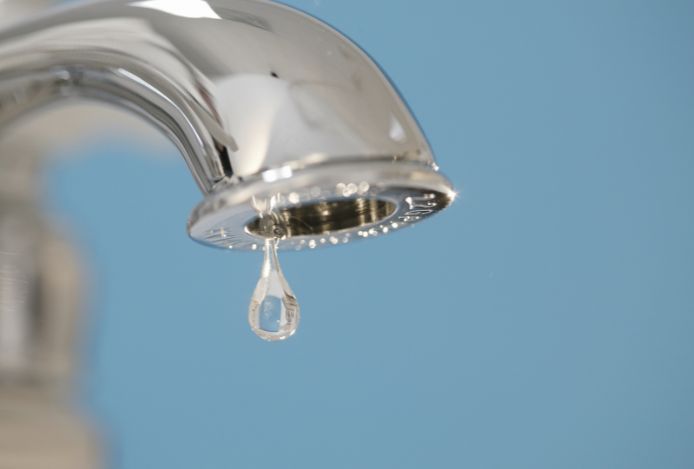
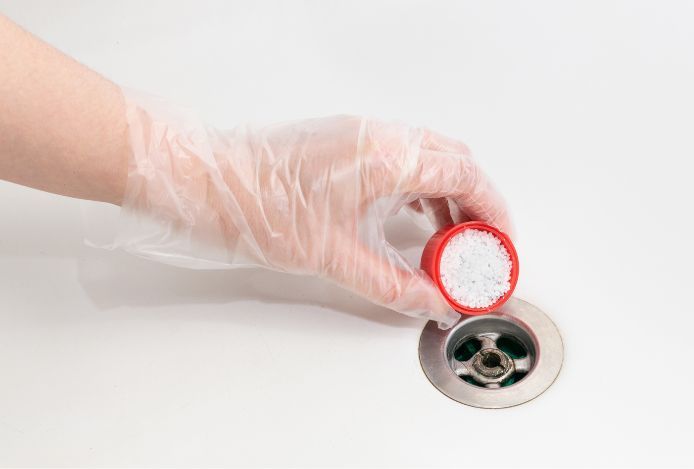
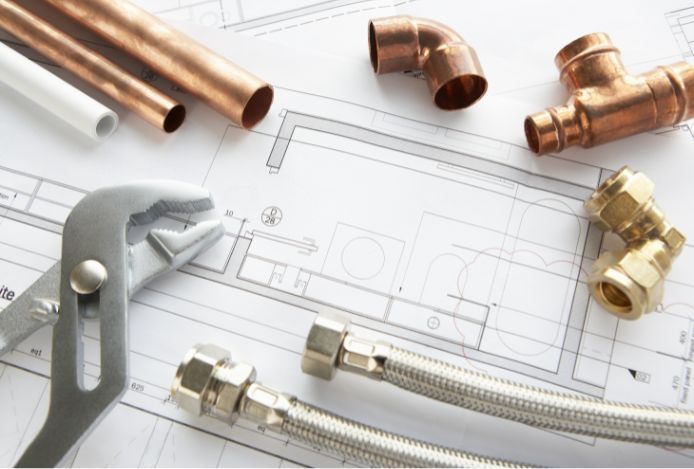

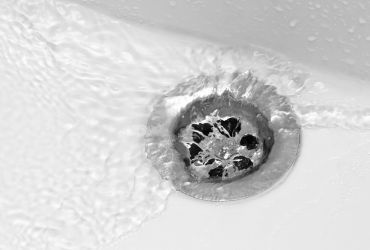
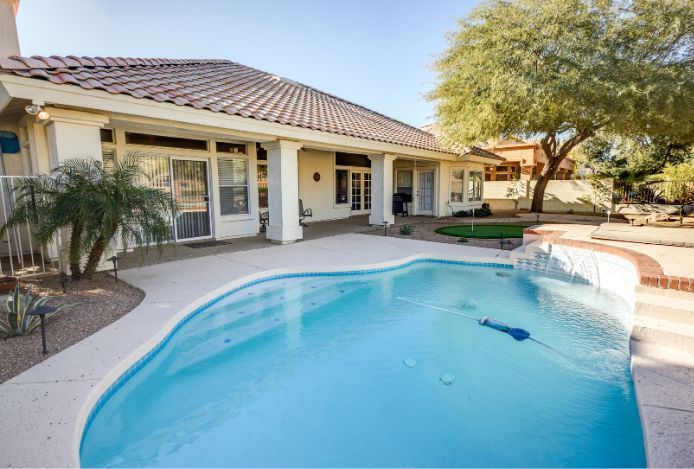
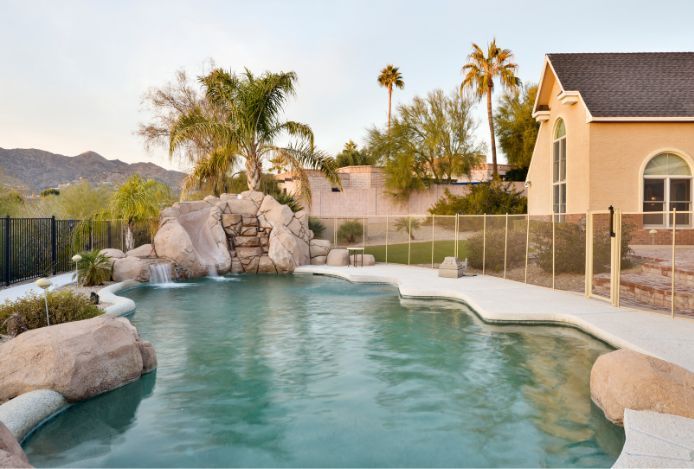
Leave a Reply